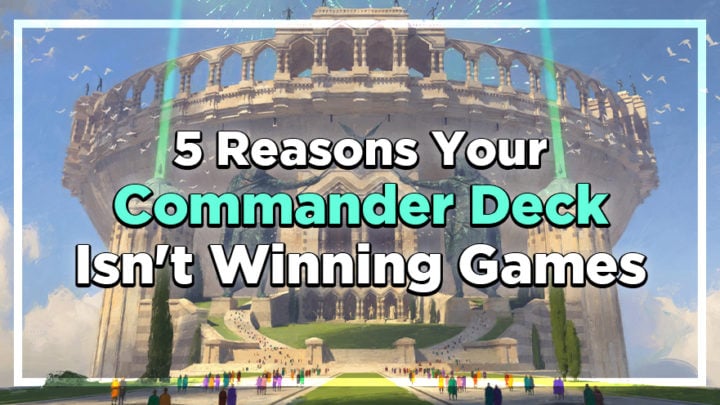We all love winning games of Commander, and though an enjoyable game is still fun even if you don’t win, it can suck to lose repeatedly. Sometimes you just need that win! Today, I’d like to look at a few of the reasons your deck might be losing more than it should be.
Your Deck Shouldn’t Win That Much
Let’s get one thing out of the way: your deck shouldn’t actually win that often. People tend to forget that, all things being equal, their deck shouldn’t win more than 25% of the time on average. While this doesn’t account for your local meta, the bias and prejudices of your local playgroup toward certain strategies, or the skill levels of the players in your playgroup, it is worth keeping in mind.
25% can feel a lot less frequent than one in four games, though, and at a certain point, it can be natural to question why you’re having less success with a deck. While I don’t advocate for tearing a deck apart after a particularly bad run, I can’t say the feeling hasn’t overtaken me from time to time. I get it — I do.
There are many reasons your deck might be failing you. Here are five reasons your deck isn’t winning games.
You Don’t Run Enough Lands
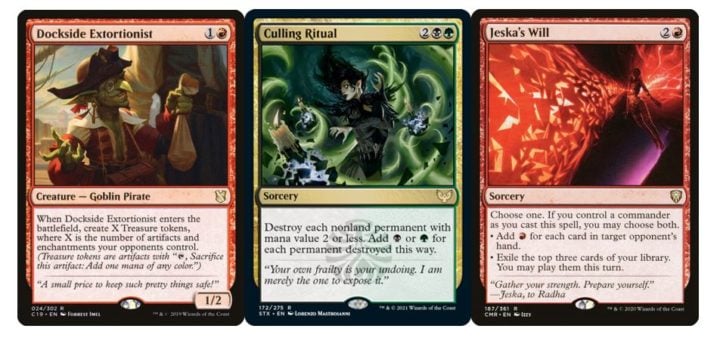
They say that the one who spends the most mana is the one who wins games of Magic. Fast mana is quickly becoming one of the turning points in optimized deck construction, with the likes of Culling Ritual and Jeska’s Will being the latest offenders. Even if this is the case at the highest levels of play, the truth is most people are greedy when it comes to land counts.
In the recent Strixhaven Quandrix stream, Frank Karsten shared his conclusions about land counts in different formats. For Commander, the ideal count given was 42. I can count on one hand the amount of decks I’ve played against with that many lands, and most of those ended up being lands-matter decks like Lord Windgrace.
I’m not alone in trimming lands, and I’ve even gone so far as to run MDFC spell-lands as some of those lands in recent builds. What I am consistent with, however, is running more than the average more often than not. For most decks I build that want to cast six- and seven-drops, I run at least 38 lands. There’s some debate about whether running MDFC’s in those slots is viable, but I think that as long as your willpower to drop them as lands is strong enough, there’s nothing wrong with running them as enters-tapped mana sources that occasionally have an effect later in the game or in a pinch.
The main issue with not running enough lands is in missing land drops. Even with a generous ramp suite, you can still end up behind on land drops as the game goes on. Dropping a Sol Ring into a Cultivate isn’t worth much if you can’t convert that lead by following it up with more lands. There are many games in which I start the game behind the green decks and end up with either the same amount (or more often, more) lands in play as the game approaches the climax. Hitting your land drops wins games, and to hit them reliably, you need to run enough lands.
You’re Not Running Enough Card Draw
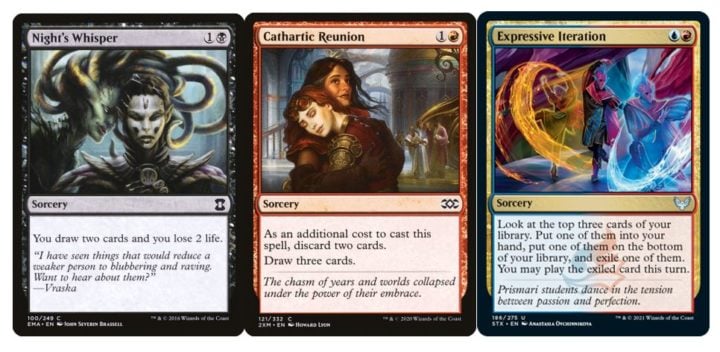
Take a look at the above cards. They’re not the sexiest card draw in the world, but there’s still plenty of reasons to run them.
Card draw is perhaps even more neglected than ramp these days, and I think it’s in part due to the obsession with ramp that has taken hold of the community in the past few years. Consistently ramping out of the gates seems like the most important goal for high-end play, and I won’t dispute that for a second if you’re playing games that resemble drag races.
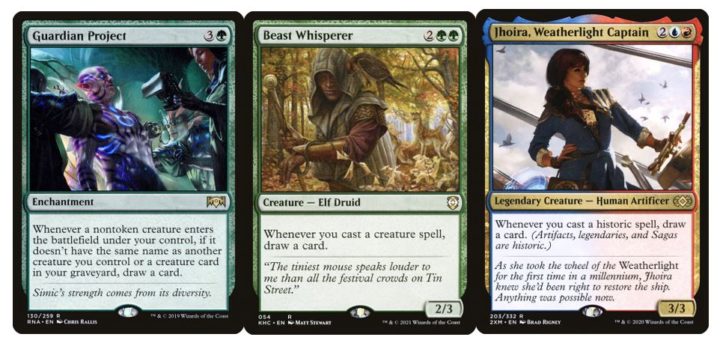
The reason your deck might not be performing as well as you’d like, though, is that you might not be drawing enough cards. Outside of decks that can have their spells replace themselves (looking at you, green decks and artifact decks), you might find that in some games, you just don’t draw the cards.
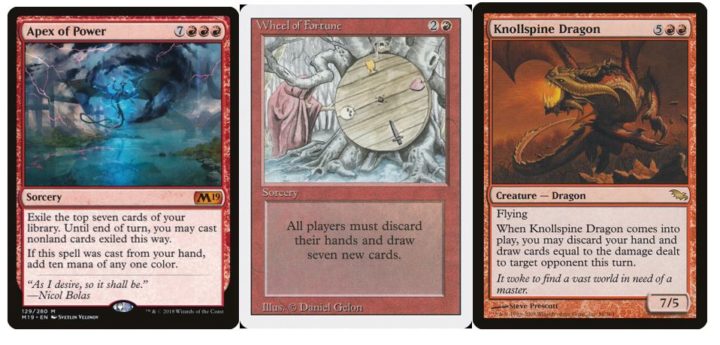
It’s one reason I have to be at peace with the fact my Neheb, the Eternal big-mana deck can sometimes misfire. When your draw is centered around burst-draw, or cards like Rhystic Study, you will have games where you can’t quite get going. The disadvantage with burst-draw is that it often requires you hitting another draw spell to keep going, and decks do need to run some less splashy ways to draw cards, too. Look at cards like the aforementioned Night’s Whisper; look at equipment like Mask of Memory; look at ways to recoup your investment should things go wrong, like Momentous Fall.
Card draw goes hand-in-hand with running enough lands. If you don’t run enough draw, you’ll miss land drops. If you don’t run enough draw, you might end up flooding more often when you run the correct number of lands. It’s a balance, but ultimately one you need to put more time into correcting.
Your Deck Isn’t Focused Enough

Variety is the spice of life, as they say. I’ve gone on record to say that my deck building often trends toward non-linearity, as I don’t enjoy winning the same way every time. The problem with this approach is that it can end up with your deck not being consistent enough to actually follow through. With my Elsha list, the variety was in how the storm win condition actually paid off; if all roads lead to Rome, then it doesn’t matter which road you take, right?
The issue arises when you end up with multiple win conditions in one deck, especially when those win conditions don’t synergize. It can be tempting to have back-up win conditions, especially if you’re packing them due to lack of confidence that you can close a game. Sometimes you end up with multiple win conditions because there’s an anchor piece that can enable different combos, too.
Add in a reluctance to use tutors because you dislike linear gameplay, and you have a situation in which your deck is fighting losing battles on multiple fronts: you’re not focused enough to pull of one of your win conditions, and you’re also left with a less synergistic deck because of your reluctance to put all your eggs in one basket.
There’s not really a solution to this problem if you enjoy variety, other than to make peace with the fact that if you’re trying to do too much, your deck might not perform. Instead, put that energy into creating more decks. Take the back-up combo out and slot it into its own deck. And in your original deck? Maybe consider some tutors, and replacing some of your cards with redundant combo pieces to gain more focus. If that ultimately makes the deck more powerful, it just might mean you need to break it out at different tables.
Your Pre-Game Talks Weren’t Good Enough
So let’s assume for a moment that your deck building was good enough. You’ve done the work, playtesting has been fine, and when you sit down to shuffle up… disaster. You just can’t get into your groove.
Some amount of the time, it isn’t your deck building that lets you down, but the discussion before the game. If you don’t line up your expectations, things might go south quickly. Power level is such a nebulous concept that it’s best to try and have a deeper discussion about what you want out of the game.
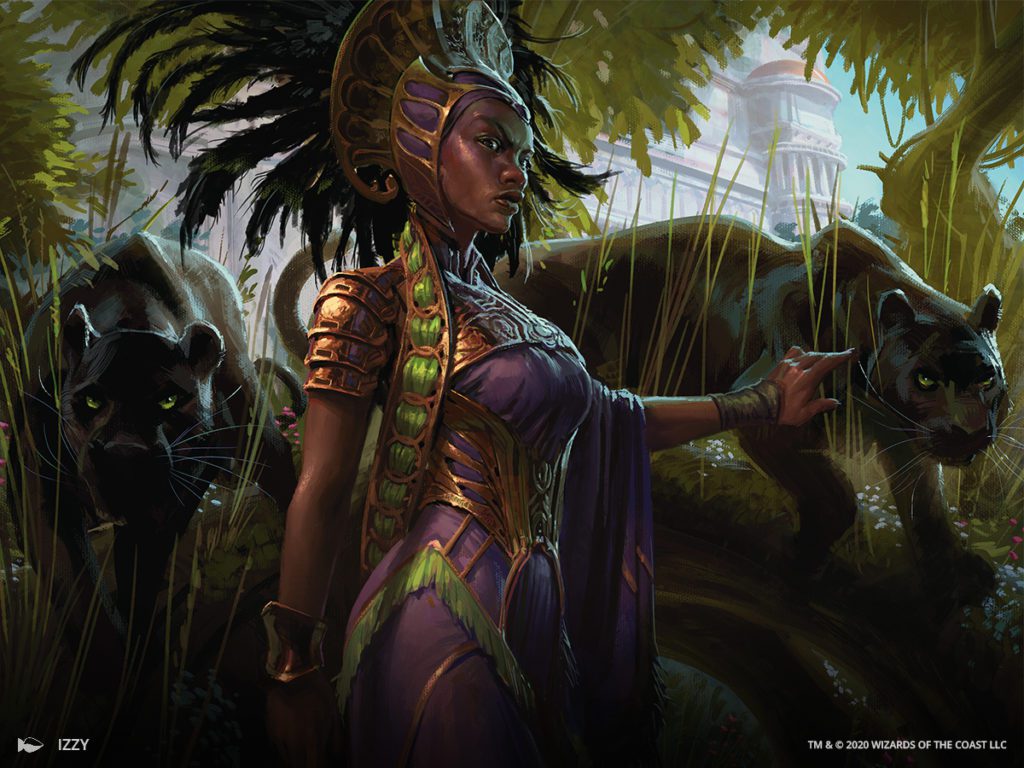
Recently, I’ve been a little frustrated with my Jolrael, Mwonvuli Recluse deck (shy a few updates, it looks like this). I’ve played a run of games where the deck has completely failed to perform — either because I’ve never been able to untap with enough tokens, or because the deck has been too slow to win. While I’ve made some concessions to power level in the way I built the deck, part of why I’ve felt the deck has underperformed has been down to my poor deck choice and poor communication.
Whether that’s because I’ve unwittingly sat down with control-heavy builds, or just decks that are plain faster, it can’t really be helped that my deck felt anemic; it wasn’t built to perform at these tables. Once I’d slept, my desires to rebuild the deck quickly abated. There’s nothing inherently wrong with owning a less powerful deck — it’s just a matter of knowing when to play it.
You’re Being Too Nice
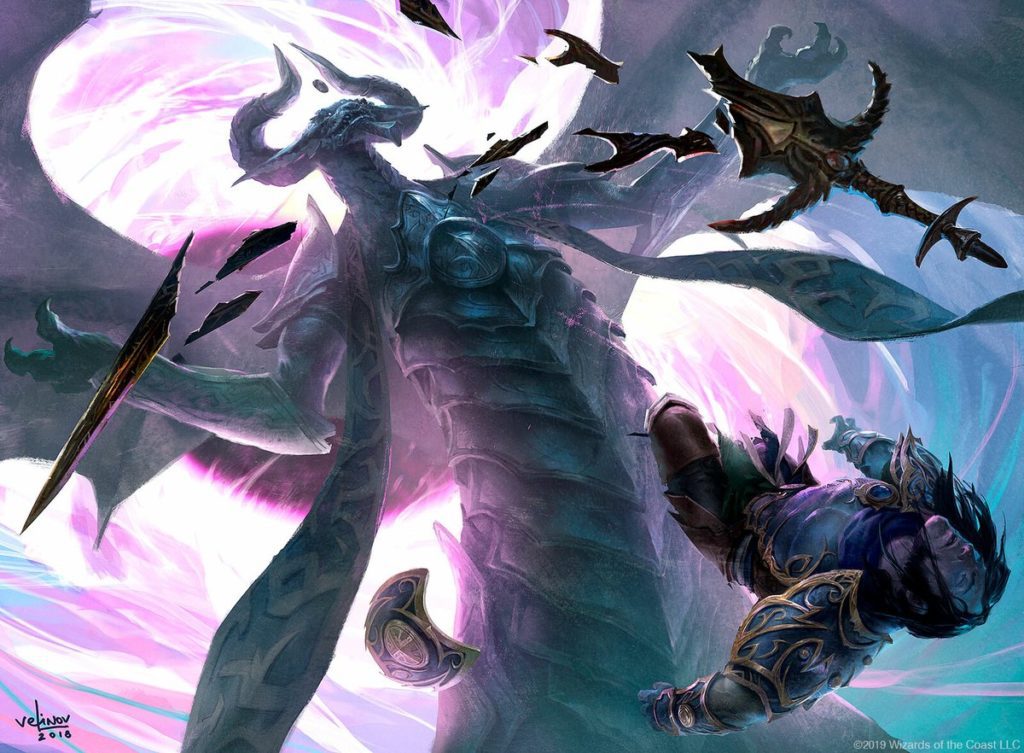
The final one has less to do with deck building, and more to do with how you’re playing the game. If you’re more of a Reveler and don’t really care for winning, this might not be a problem for you. The thing is, though… if you’re reading this article, you probably do want to increase your win rate a little bit.
The social contract in games of Commander often advises us to be kind and not lean too far into stopping our opponents from having fun. There’s also the idea that just because you could make a play doesn’t mean you should. All of this is well and fine until it starts to eat into your win percentage too much.
Last week, I wrote about anti-social decks that hog the table clock. One thing I mentioned was that your threat assessment against these kinds of decks needs to be on point, and breaking a faux pas like countering a ramp spell or blowing up mana rocks early game might be the way forward to winning against these decks.
There’s also the matter of playing light stax pieces or other hatebears. It can be distressing to hear negative feedback about how some of your cards are making a game unpleasant, and the first reaction might be to take those cards out of the deck. If those pieces aren’t purely there to hate on one person in your playgroup, and they contribute to your deck’s ability to win, it might be hurting your own win rate to cut them.
I’m not talking about cards like Winter Orb or Humility here — those are a lot more divisive. But cards like Aura of Silence, or Thalia, Heretic Cathar? Just play it. If a player can’t get over a little speed bump, then why run interaction at all?
As well as the cards you include or don’t include, it’s the decisions you make that sometimes can be hard on a surface level, especially with peer pressure in a more casual group. Just as you can decide to be nice and not always blow everything up with Aura Shards, though, you can choose to snipe out a mana rock if you think it buys you a turn when trying to win the game. Don’t be a jerk, sure… but don’t be a doormat, either.
In Closing
And there we have it — five ways that might explain why you’re losing more games than you’d like. These ways don’t account for mismatches in player skill, politics, or variable threat assessment from other players. They also don’t account for the general chaos of an EDH game, where some players might not be trying to win. What they do offer, though, is ways for you to make sure you did everything right. If you still lose, you know it’s not on you.
Hit me up on Twitter to continue the discussion.

Kristen is Card Kingdom’s Head Writer and a member of the Commander Format Panel. Formerly a competitive Pokémon TCG grinder, she has been playing Magic since Shadows Over Innistrad, which in her opinion, was a great set to start with. When she’s not taking names with Equipment and Aggro strategies in Commander, she loves to play any form of Limited.

